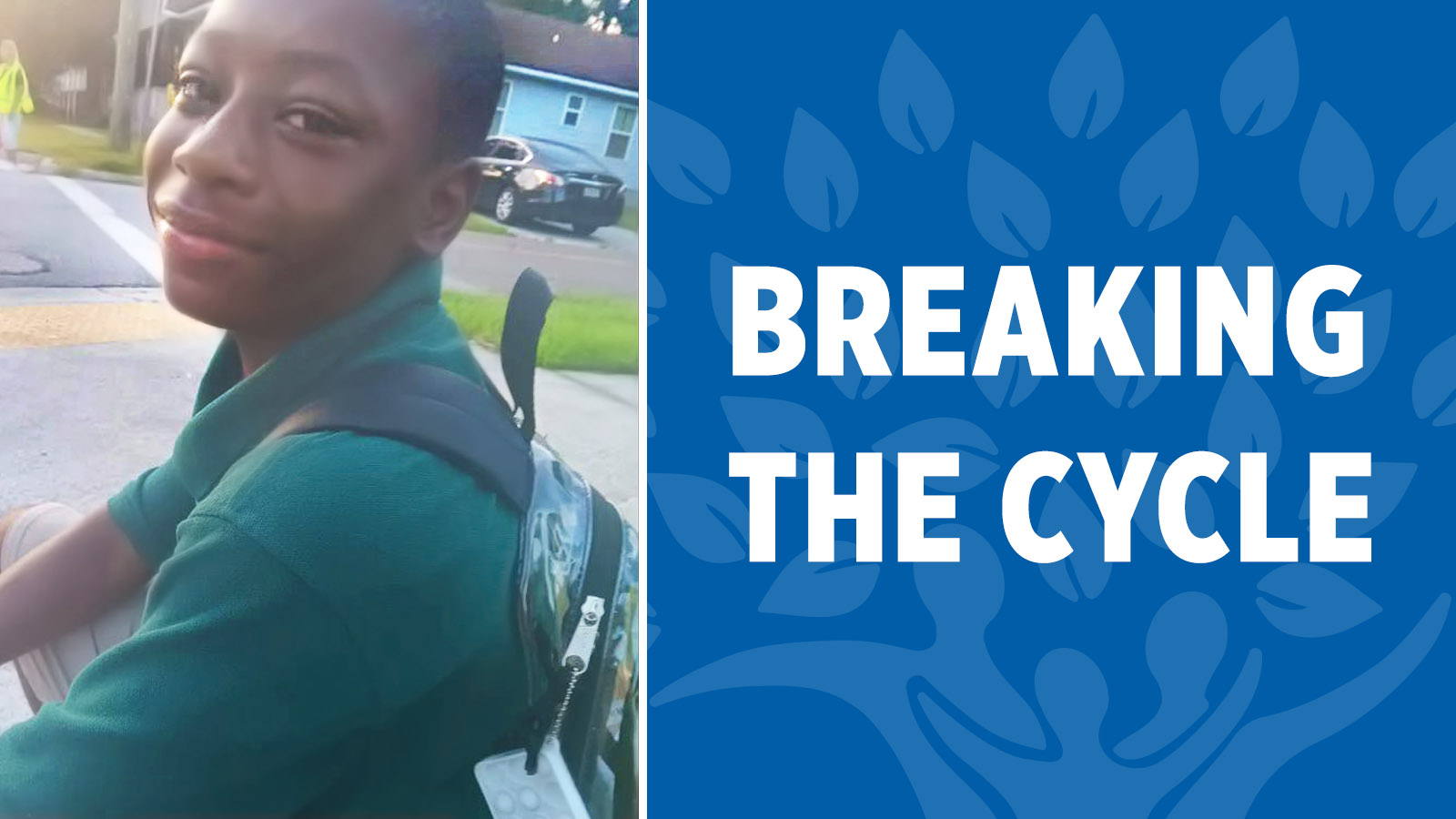On any given night in Florida, a child is placed into the back of a police car. In 2022, almost 1,450 children between the ages of 10-17 were arrested in Duval County, according to the Florida Department of Health. Whether picked up for trespassing, vandalism, larceny, or drug offenses, these children are given two choices: gamble with the unpredictable justice system or participate in a civil citation program and have their arrest expunged.
Thirteen-year-old Camontie Harrison faced this choice after he physically harmed his legal guardian’s father in a bout of anger. Charged with battery, the Jacksonville sixth-grader was referred to the Duval County Teen Court Program instead of jail. The program allows children like Camontie to accept responsibility for their actions by completing various sanctions such as therapeutic interventions, written assignments, and community service.
Research shows that children under 17 who are incarcerated are 70% more likely to re-offend within three years. Aware of the consequences, Camontie chose to participate in the Teen Court Program, determined not to become another statistic.
Camontie was then referred to The LJD Jewish Family & Community Services’ “At Hope” program. At Hope is a wraparound service for children with civil citations or those at high risk of becoming involved in the juvenile justice system. Case managers help them complete the sanctions assigned by Teen Court and often discover other ways to support the youth in getting back on track.
In Camontie’s case, an At Hope case manager worked with him on his court sanctions during scheduled school visits. Eager to demonstrate his accountability, he insisted on working independently, welcoming any corrections along the way. Camontie says it was rewarding to complete something on his own.
“I learned my lesson,” he said.
At Hope Mentor Matthew Birt says the program has helped 240 kids since its start in July 2020.
“This program is geared towards giving children second chances and ensuring they understand that one mistake does not define the rest of their lives. Our number one goal is to keep kids from going further into the system.” – At Hope Mentor Matthew Birt
Upon completing the At Hope program, which usually takes 4-6 months, any offending youth’s arrest is expunged, helping those like Camontie rebuild shattered foundations.
Aside from helping kids complete their court sanctions, JFCS often extends a helping hand to their families at home. Systemic change calls for broader support beyond individual interventions; this includes mentoring, counseling referrals, DCPS-led tutoring, and much more.
Currently, Camontie is under the care of a neighbor while his mother grapples with a substance use disorder. His case manager connected his guardian with financial assistance and food from the Max Block Food Pantry. Additionally, JFCS provided Camontie with a bed frame, so he would no longer be sleeping on a mattress on the floor.
“I was in a bad place,” Camontie said.
Now looking at his life from a different perspective, Camontie’s gaze is fixed on the horizon of possibility. He says he wants to encourage kids in similar situations to reach out for help.
“Talk to someone you trust,” he said.
Birt emphasizes the importance of intervening in the lives of arrested children to prevent them from perpetuating a cycle of repeated arrests. Despite their mistakes, he says these children have bright futures ahead of them.
“This is the essence of what At Hope aims to achieve — providing support, guidance, and resources to help these kids break free from the cycle of the justice system and pave the way for a promising future.” – Matthew Birt
Today, Camontie is looking forward to graduating high school and pursuing his dreams — thanks to the vision of a brighter tomorrow instilled in him by At Hope.


